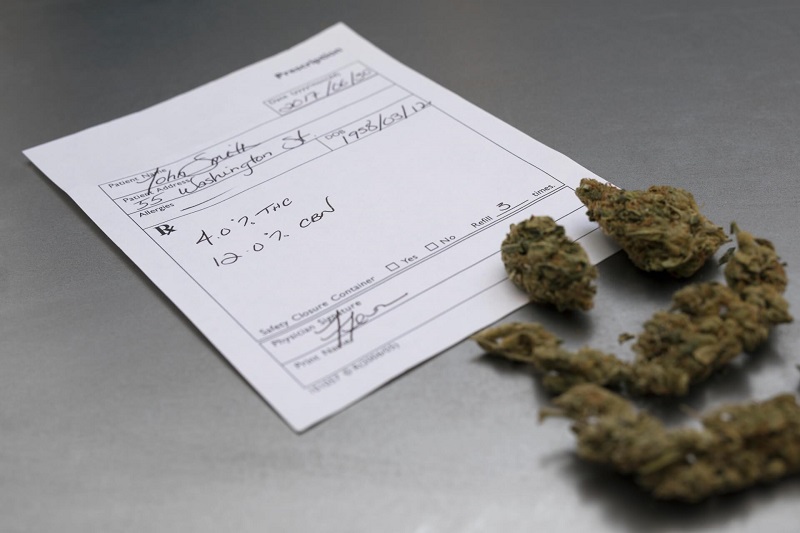Maryland’s Medical Cannabis Commission Expands Patient Services Under COVID-19

From restaurants to retail, the COVID-19 pandemic has, for better or worse, turned nearly every business on its head. The state’s medical cannabis industry is no exception.
Gov. Lawrence J. Hogan Jr. (R) declared medical cannabis dispensaries essential businesses under an executive order, allowing them to remain in operation throughout the course of the pandemic.
“We thought that made it even more important that we implemented all precautions necessary to protect patients who are vulnerable, primarily in vulnerable populations,” William Tilburg, executive director of the Maryland Medical Cannabis Commission told lawmakers at a joint meeting of the House Appropriations and Health Operations subcommittees Thursday.
Because many patients are immuno-compromised, the Maryland Medical Cannabis Commission instituted a series of measures to minimize unnecessary in-person interactions, such as allowing written certifications to be performed via telehealth.
“To be frank, we were hesitant to move forward with the telehealth,” because cannabis is classified as a schedule one narcotic alongside heroin and LSD, Tilburg explained.
Maryland law does not define what conditions are suitable for a medical cannabis prescription.
“It’s in the professional judgment of the provider — if the benefits outweigh the risks and there’s been … alternative treatment[s], and they haven’t been effective,” he said.
Other safety measures added during the pandemic include:
- Eliminating the receipt signature requirement;
- Requiring masks and social distancing in retail areas;
- Allowing contact-free, curbside delivery;
- Increasing the number of businesses that are authorized to deliver to patients;
- Conducting business compliance inspections virtually; and
- Allowing patients to fill their prescriptions at drive-thru windows.
Asked if there will be recommendations to keep some COVID-19 measures after the pandemic, Tilburg said the commission was hesitant at first because of fears about crime. But following a public meeting held over the summer, stakeholders started to see benefits of expanding patients’ options.
Tilburg said at least three measures could be here to stay: curbside delivery, drive-thru services and expanded delivery options.
“There have been no incidents,” he told the subcommittees. “Overwhelmingly from all stakeholders was ‘this is a good thing,’ for particularly those that are maybe at a heightened risk for having serious issues with COVID or have limited access or ability to move for some reason or another.”
The commission also has seen growth this year.
The Maryland Medical Cannabis Commission now serves more than 120,000 patients — a 30% increase from last year. Dispensary sales grew from $252 million in 2019 to more than $423 million so far in 2020. And Tilburg said he expects sales to reach $450 million by the end of December. Also, more providers are permitted to write prescriptions, bringing that number to more than 2,000.
Legislation, sponsored by House Minority Leader Nicholaus R. Kipke (R-Anne Arundel), became law in October, allowing physician assistants to apply to prescribe written certifications to patients and expanding access to medicinal cannabis across the state.
“These results have not been achieved anywhere else in the country,” said Tilburg, referring to the large number of minority and disadvantaged business owners in the industry.




 Creative Commons Attribution
Creative Commons Attribution